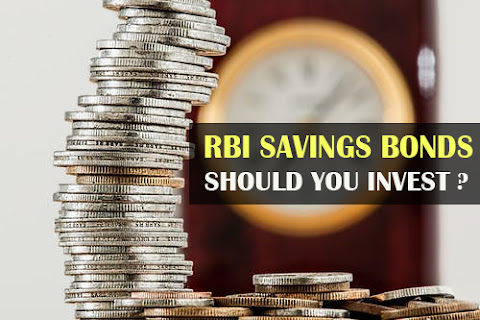A Detailed Guide on RBI Bonds
 |
The equity market look very attractive to most of the individuals. Statements like below can force many to position all their money into the equity market.
If you had invested Rs.1 Lakh in Bajaj Finance in 2010, it would became Rs.1.28 Crore in 2021.
If Bajaj Finance is tempting you to require a footing inside the equity, scan this - If you had invested Rs.1 Lakh in Yes Bank in March 2017, it would be Rs 5000 in 2021.
It tells you one factor necessary related to equity class - equity can give you higher returns, but it comes with risk. If you are able to take a risk or you are one who believes in "risk hai to ishq hai" thing, alone then invest in equity. If you select to require a footing in equity, invest alone a definite share of your total investment in it, counting on your risk profile. Diversification is one among the key parameters in finance, and you want to balance your equity investment with various financial instruments that give you with wise guaranteed returns.
When we Speak about Fixed returns investment decisions, most investors opt for Fixed deposits. At present, the matter with Fixed deposits is that the low rate of interest.So is there any other asset class to go with?
One such asset class introduced by the reserve bank of India - Floating Rate Bonds (RBI bonds).
RBI bonds were launched last year on 1 July 2020. Below there are variety of features of these bonds:
- Individuals and Hindu Undivided Families can invest in this asset class. If you are an NRI, you are not eligible for this bonds.
- You can begin your investment from Rs.1,000 and in multiples of Rs.1,000 thereafter. there is not any maximum limit to purchase these bonds. You will be able to get these RBI bonds of any amount.
- The RBI bonds shall be repayable to you at the expiration of seven years from the date of issue.
- You cannot trade the bonds inside the secondary market. you cannot use them as collateral for loans from banks and NBFCs.
RBI Bonds: Interest rates - The interest the RBI is giving is attractive than the Fixed deposits rate of interest. The interest Rate will be floating in nature and will reset every six months. At the start of the scheme (1 July 2020), the interest rate offered was 7.15%. On 1 January 2021, the RBI announced no change in the interest rate, and it stayed at 7.15%. The next reset is very much supposed to happen on 1 July 2021.
It is a good option if you are looking to get a regular income. You will get interest on your total investment every six months.
Interest rate calculation - The RBI has decided to fix the interest rate on these RBI bonds to 0.35% above the prevailing NSC rate. The government usually reviews the NSC interest rate every quarter. The government calculates the NSC interest rate using a formula which was suggested by the Shyamala Gopinath Committee. As per the committee, the interest rate on small savings schemes should be 0.25-1% higher than the yields of government bonds of same maturity.
Taxation - The interest you receive from the bonds will be taxed as per your income tax slab. Further, TDS is also applicable to the interest income you earn.
For example, if you invested Rs 1 lakh in the bonds, you will earn Rs 3575 once on 1st January and then the same amount on 1st July. The total amount of Rs 7150 gets added to your taxable income (if both payments are received in the same financial year), and you will be taxed as per your income tax Slab.
Premature withdrawal - Premature is only allowed if your age is above 60 years, subject to a minimum lock-in period depending on your age Slab.
How to buy these bonds?
You can purchase these bonds through any nationalized banks like ICICI Bank, HDFC Bank, Axis Bank, SBI, etc. The bonds will be issued to you in electronic form and will be available in your Bonds Ledger Account.
Comparison between FD and RBI Floating Savings Bond :
 |
Should you buy these bonds?
The first thing you need to understand in such investment options is the lock-in. You should only invest that money in buying these bonds that you don’t need for the next seven years. It is an excellent option for senior citizens who are not happy with the low fixed deposit interest rate (between 5 to 7 percent).

What a wonderful review it was.. well done team tradex.
ReplyDelete